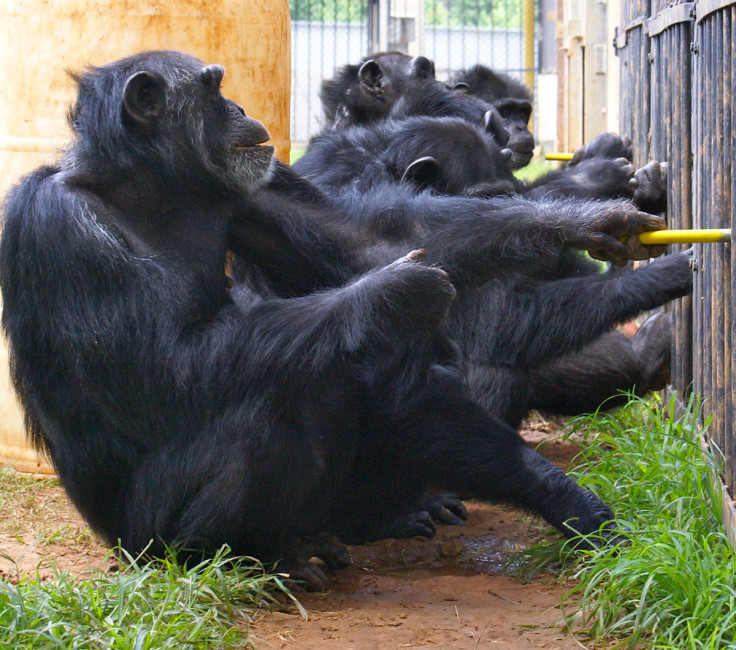Chimpanzees are as competitive as humans - but learn cooperation by punishing their members
To promote cooperation within the groups, chimps learn to mitigate competition between them.

Chimpanzees are highly competitive between each other, almost as much as humans, scientists have revealed. However, like humans, the primates seem able to mitigate the negative effects of this competition by coming up with effective cooperation strategies.
Competitive tendencies makes it a lot harder for members of a group to cooperate with each other and humans are often believed to be the only species capable of going beyond the competition that exists between them in order to cooperate. To make sure cooperation wins over competition, they resort to "enforcement strategies" – punishing freeloaders and choosing the partners they prefer to complete a cooperative tasks.
In a new research paper published in the journal PNAS, scientists have shown that the ability to counter our competitive natures by promoting cooperation could be an ability we share with other primates, in particular with our closest relative, the chimpanzee.
The study strongly suggests that humans are not an "anomaly in the animal kingdom", as it had previously been stated – rather showing that cooperation, both human and animal, rests on fundamentally similar principles such as mitigate competition and communicate shared goals
Pulling for reward
In the study, the scientists worked with 11 outdoor-housed chimpanzees. The animals were presented with a task in which two or three of them were required to pull an apparatus simultaneously in order to receive rewards.
Crucially, the chimps were free to choose their partners, allowing opportunities for cooperation or freeloading. At first, competitiveness was high, with the monkeys trying to get food rewards for themselves individually. For instance, dominant individuals could claim specific spots at the apparatus and and bystanders could steal the food procured by others.

However, overall cooperative interactions were at least five times as likely as competitive interactions – a trend which is very similar to what happens in groups of humans.
The scientists noted that the chimpanzees also resorted to enforcement strategies to improve cooperation. This included protest, aggression, or third-party intervention to punish the freeloader, as well as other strategies such as ceasing to pull until the freeloader departed or withdrawing from the apparatus.
By the end of the study, interactions were almost entirely cooperative, highlighting the fact that humans are not the only one able to cooperate for the good of the collective. "Overall, our findings contrast sharply with reports of high levels of competition, low levels of tolerance, and harassment-induced food transfers among chimpanzees. The results suggest that chimpanzees can promote cooperation by inhibiting competition", the authors said.
© Copyright IBTimes 2025. All rights reserved.






















